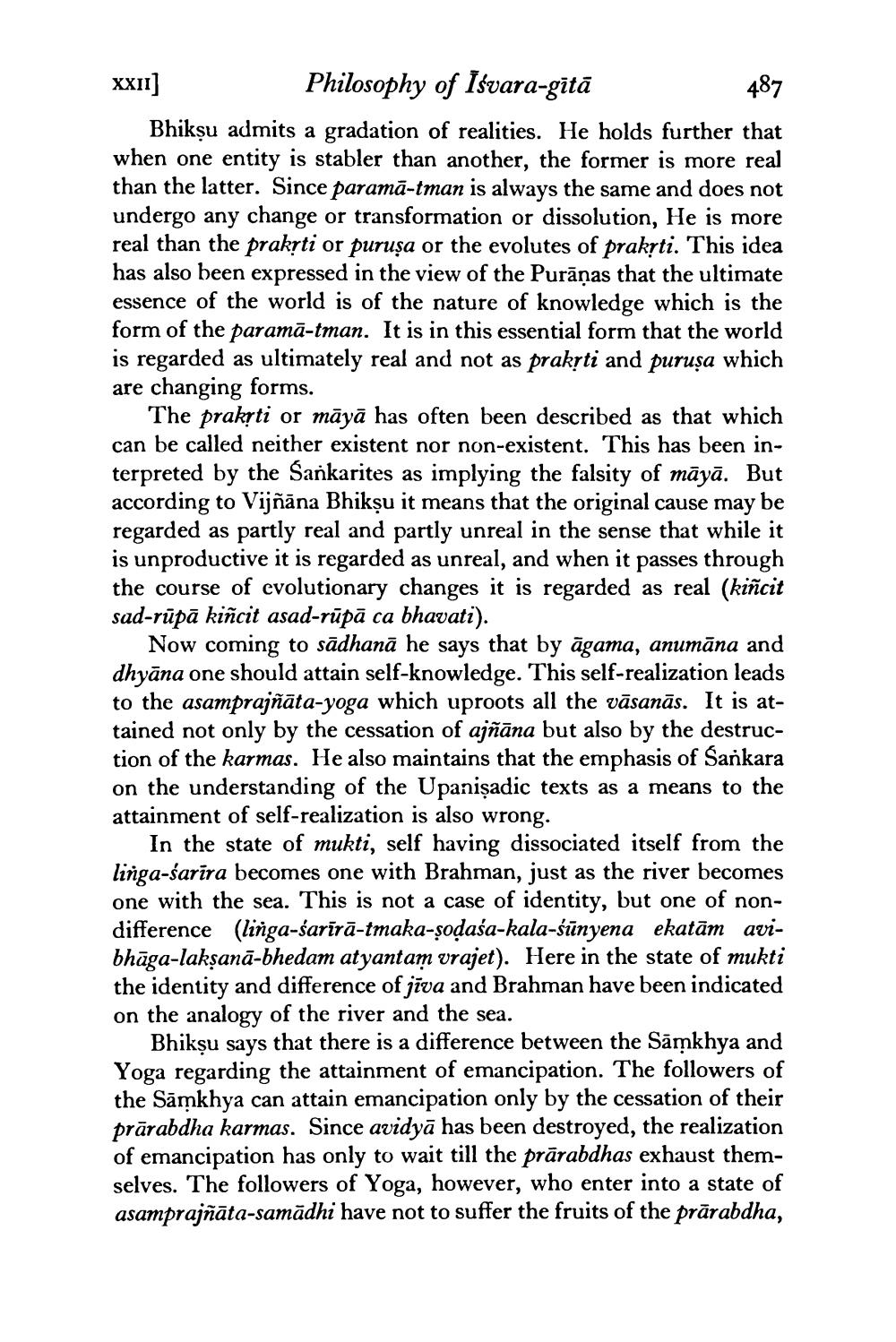________________
XXII] Philosophy of Iśvara-gitā
487 Bhikṣu admits a gradation of realities. He holds further that when one entity is stabler than another, the former is more real than the latter. Since paramā-tman is always the same and does not undergo any change or transformation or dissolution, He is more real than the prakrti or puruṣa or the evolutes of prakrti. This idea has also been expressed in the view of the Purāņas that the ultimate essence of the world is of the nature of knowledge which is the form of the paramā-tman. It is in this essential form that the world is regarded as ultimately real and not as prakrti and purușa which are changing forms.
The prakrti or māyā has often been described as that which can be called neither existent nor non-existent. This has been interpreted by the Sankarites as implying the falsity of māyā. But according to Vijñāna Bhikṣu it means that the original cause may be regarded as partly real and partly unreal in the sense that while it is unproductive it is regarded as unreal, and when it passes through the course of evolutionary changes it is regarded as real (kiñcit sad-rūpā kiñcit asad-rūpā ca bhavati).
Now coming to sādhanā he says that by āgama, anumāna and dhyāna one should attain self-knowledge. This self-realization leads to the asamprajñāta-yoga which uproots all the vāsanās. It is attained not only by the cessation of ajñāna but also by the destruction of the karmas. He also maintains that the emphasis of Sankara on the understanding of the Upanișadic texts as a means to the attainment of self-realization is also wrong.
In the state of mukti, self having dissociated itself from the linga-śarīra becomes one with Brahman, just as the river becomes one with the sea. This is not a case of identity, but one of nondifference (linga-śarīrā-tmaka-sodaśa-kala-śünyena ekatām avibhāga-lakșanā-bhedam atyantam vrajet). Here in the state of mukti the identity and difference of jīva and Brahman have been indicated on the analogy of the river and the sea.
Bhikṣu says that there is a difference between the Sāmkhya and Yoga regarding the attainment of emancipation. The followers of the Sāmkhya can attain emancipation only by the cessation of their prārabdha karmas. Since avidyā has been destroyed, the realization of emancipation has only to wait till the prārabdhas exhaust themselves. The followers of Yoga, however, who enter into a state of asamprajñāta-samādhi have not to suffer the fruits of the prārabdha,




